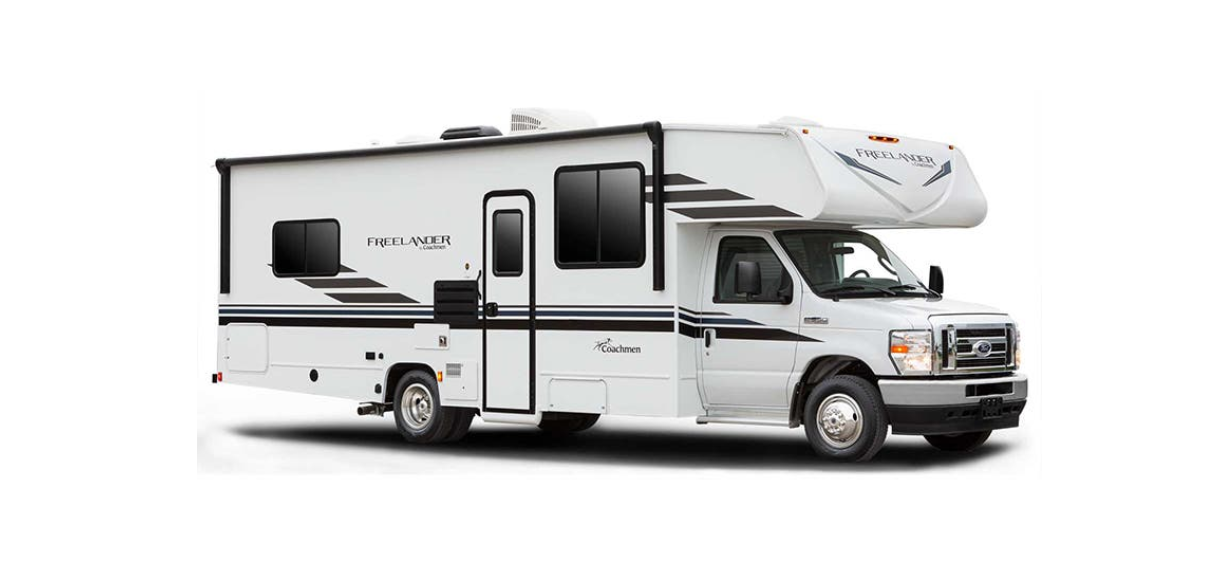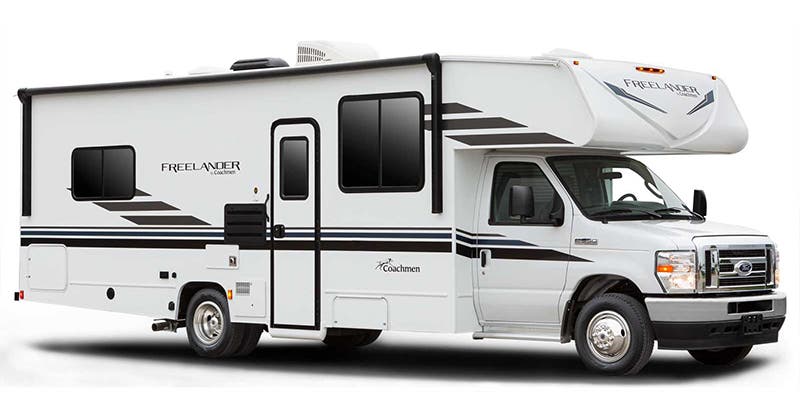
2022 Coachmen Freelander CLASS C MOTORHOMES Your Motorhome’s Fuel System
Your Motorhome’s Fuel System
Use extreme care when fueling your motorhome. Always shut OFF the engine, do not use cellular phones, do not smoke and shut OFF all pilot lights before adding fuel. Fuel spills represent a serious fire hazard. Never restart the engine or relight pilot lights while fuel vapor is present. Static electricity-related incidents when refueling are possible. They can happen most often during cold and dry climate conditions. Static-related incidents may result in a brief flash fire occurring at the fill point when the nozzle contacts the fuel tank. A build-up of static electricity can also be caused by entering a vehicle during fueling. If you return to the fuel fill pump during refueling, the static may discharge at the fill point, causing a flash fire or sustained fire with fuel vapors.
You can minimize these and other potential fueling hazards by following safe refueling procedures:
- Turn OFF the vehicle engine.
- Disable or turn OFF any gas-burning appliances: the furnace, water heater, stove, oven, and any pilot lights, etc.
- Turn OFF the main propane valve.
- Do NOT smoke, light matches or lighters while operating the refueling system or when near fuel tanks or containers.
- Before dispensing fuel, ALWAYS connect the grounding wire between the motorhome and the vehicle or equipment being fueled.
- NEVER jam or otherwise try to lock open the refueling latch on the fuel fill nozzle.
- Do NOT re-enter your motorhome during refueling. If you cannot avoid re-entering your vehicle, discharge any static build-up BEFORE reaching for the nozzle, by touching something metal with a bare hand, such as the vehicle body or frame that is located away from the fuel nozzle.
- In the event a static-caused fire occurs when refueling, leave the nozzle in the fill pipe and back away from the vehicle. Turn OFF the fuel pump master switch immediately.
- To avoid fuel spillage, do NOT over-fill or top-off your vehicle tank.
- NEVER refuel in an enclosed space or building.
- NEVER siphon fuel by mouth.
- Avoid fuel contact with your eyes and skin.
DANGER
Potentially explosive fuel vapor may be present at fuel filling stations and during refueling. NEVER enter a fuel filling station or refuel equipment if your furnace or water heater is operating or if your refrigerator is operating on propane. Both the flame and the igniters in the burners of these appliances are sources of ignition and could cause an explosion. These appliances must be turned OFF before entering a fuel filling station or refueling equipment. Turning OFF the propane main tank valve only is not sufficient. The appliances must be OFF at their electrical operating switches.
Before dispensing fuel, turn OFF all engines, fuel-burning appliances, and their igniters (see operating instructions). Do NOT dispense fuel within 20 feet (6.1M) of an ignition source. May cause ignition of flammable vapors, which can lead to a fire or explosion and result in death or serious injury.

